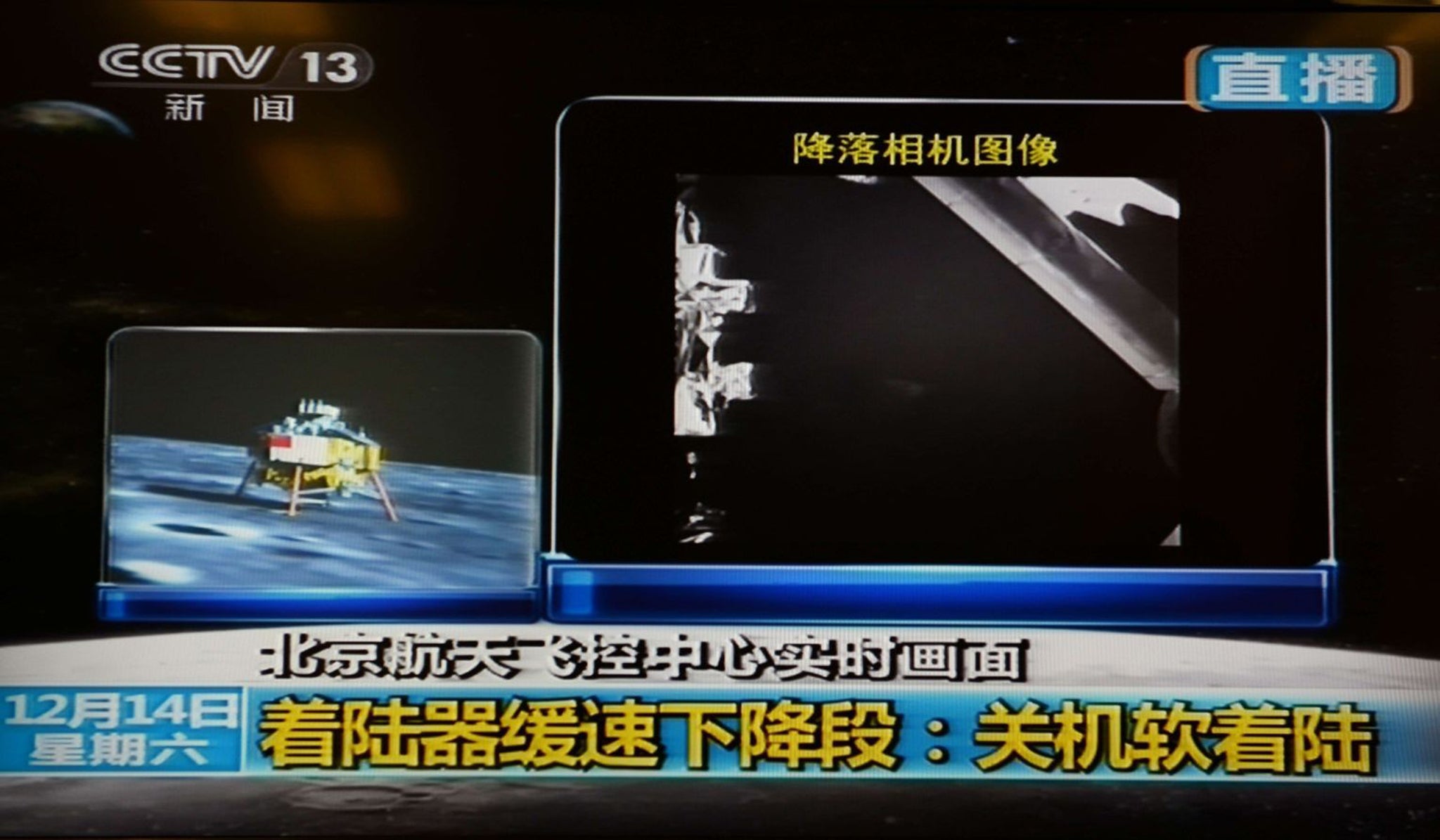
China has reported landing its Jade Rabbit rover on the moon, in the first soft landing of a rover in nearly four decades today, the latest step in the country's ambitious space programme.
The Chang'e 3 lander was scheduled to touch down at 9.40pm local time (1.40pm GMT).
State television showed pictures of the moon's surface as the Chang'e 3 lander touched down shortly before this.
The lander carries the moon rover called Yutu, or “Jade Rabbit” which was launched onboard the Chang'e 3 rocket on 1 December. After landing, the rover is slated to separate from the Chang'e and begin a three-month scientific exploration, looking for natural resources.
Its name was chosen in an online poll where 3.4 million people voted. The 120kg (260lb) rover can travel at 200m per hour and climb slopes at up to 20 degrees, according to media reports.
The landing makes China the third nation to carry out a lunar soft landing after the United States and the former Soviet Union. The last one was in 1976.
A soft landing protects the craft and the equipment it carries from sustaining any damage. An earlier Chinese craft orbited and collected data before intentionally crash-landing on the moon.
The Chang'e mission blasted off from south-west China on 2 December on a Long March-3B carrier rocket.
China Central Television (CCT) have broadcast live footage of the landing and millions of people had been expected to be watching the operation as it is carried out. CCT had said the Chang'e will come to a stop from a speed of 1.7km (1.06 miles) per second during the sensitive landing process, which would last more than 10 minutes.
China sent its first astronaut into space in 2003, becoming the third nation after Russia and the United States to achieve manned space travel independently. China has already said its eventual goals are to have a space station and put an astronaut on the moon.
China's military-backed space programme has already made major breakthroughs in a relatively short time, although it lags far behind the United States and Russia in space technology and experience.
Additional reporting by agencies
Subscribe to Independent Premium to bookmark this article
Want to bookmark your favourite articles and stories to read or reference later? Start your Independent Premium subscription today.

Join our commenting forum
Join thought-provoking conversations, follow other Independent readers and see their replies